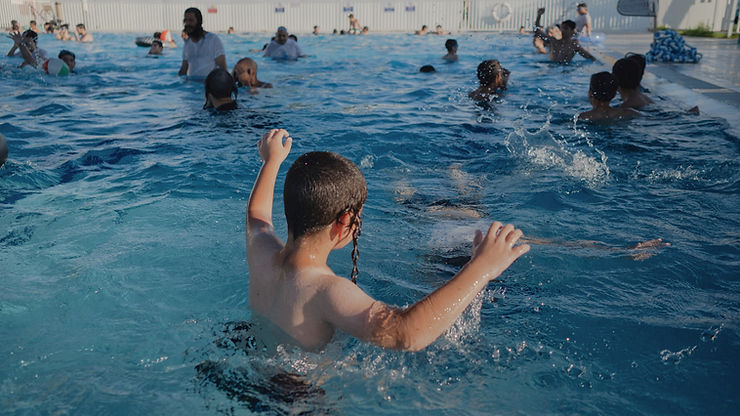By: Olivia Fang
In the city of Rehovot, situated in central Israel, two women, Chaya Hitin, an ultra-Orthodox Jew, and Odelia Tsaidi-Zommer, a secular Jew, both head out for a swim (New York Times). Hitin and her daughters visit a pool separated by gender, allowing them to swim without encountering any men or boys, that closes during the Jewish Sabbath. Tsaidi-Zommer, however, visits a mixed-gender pool, where she can swim with her sons and nephews any day she wants. While these two pools seem completely different, it turns out that they are actually located in the same swimming center.
The Weisgal Recreation Center houses two pools that are 40 yards apart and separated by a fence to cater to both the ultra-Orthodox and the secular Jewish population of Rehovot. Approximately 45% of Israel’s Jewish population consider themselves to be secular, wanting a society with “Jewish character”, but with a secular government (New York Times). 14% of Israeli Jews are ultra-Orthodox and prefer to live under a religious government (New York Times). The remaining 41% of Israeli citizens are all somewhere between ultra-Orthodox and secular, but are content with being under a “secular state” (New York Times). These differing beliefs have led to many arguments among Israeli citizens, resulting in protests against the government due to its attempts to turn Israel into a religious country.
However, these protests and disagreements contradict what life is actually like for many communities in Israel. In most areas, secular Jews and ultra-Orthodox Jews live separately, allowing each group to adhere to their preferred lifestyle. Even in mixed communities, residents make compromises, and some even embrace the different cultures around them. As Ofer Zalzberg, an Israeli academic and researcher, tells the New York Times, “Israel’s polarization between two purported camps, secular-liberal and religious-conservative, conceals a third camp characterized by secular-religious cooperation and hybridity.”
In many ways, the two pools represent what life is like for most mixed communities, making compromises to satisfy as many as possible. Despite the occasional complaint, the pools are a welcome addition to the area. 33-year-old Yitzhak Katz, an ultra-Orthodox Jew, often comes to the pool with his secular friend, telling the New York Times, “We disagree on everything — except that we’re best buddies. And we both love this pool.”
Sources:
– An Israeli City Where Compromise and Division Swim Side by Side – The New York Times (nytimes.com)











